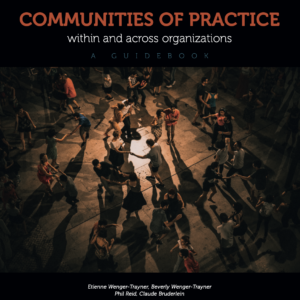NOTICE: There is an updated version of all these FAQs on our new website:
Should communities of practice attempt to assess or measure the value they create?
The issue of measurement and assessment is a controversial one when it comes to communities. Some see measurements as community killers and some see them as the only way communities can survive in organizations. The reality of most communities is more nuanced. While it is true that red tape can harm a community, some awareness of the value created can also inspire members and legitimize their participation and personal investment. And while demonstrating value to an organization is important to ensure support and sponsorship, trying to measure everything is not always the best way to make the value of a community understandable. This calls for a very pragmatic attitude. Communities of practice can produce some very tangible outcomes, such as time savings or documents, whose value can be measured. At the same time a good part of the value of having a community is less tangible and difficult to assess, such as the level of mutual trust, commitment, and inspiration. Often the existence of a community can be readily justified by accounting for the tangible outcomes and assuming that less tangible aspects come as a bonus. Practically, since time is often the most difficult challenge for communities, one needs to consider carefully how much of their precious time available for community participation members should devote to justifying the existence of their community. Much of this depends on the context and on the level of direct investment in communities. One principle to remember when thinking about measurements applied to communities and learning in organizations is that the true management of knowledge processes requires intelligent conversations. If measurements are in support of intelligent conversations about real value creation, they tend to be useful. But if they are a substitute for such conversations, they tend to become counterproductive.| << What are the key success factors? | Why should organizations pay attention? >> |
For more information, click here:
For a more precise definition, see our theory page on value creation:
For a bit more info, see our general (but brief) introduction to communities of practice and their use in various contexts:
For practical advice on cultivating communities of practice, see our new guidebook:
For workshops on cultivating communities of practice:


